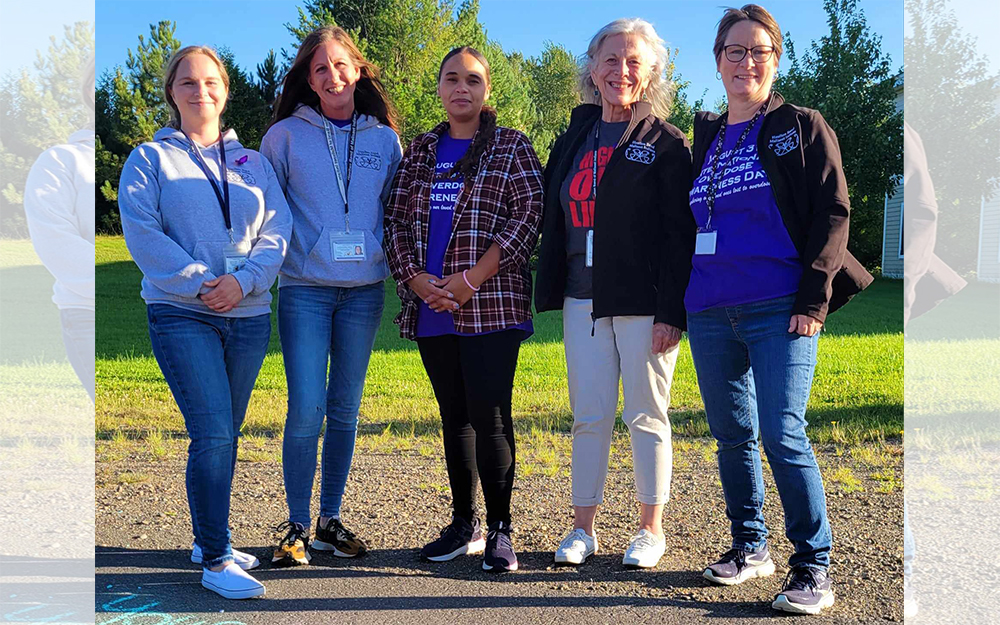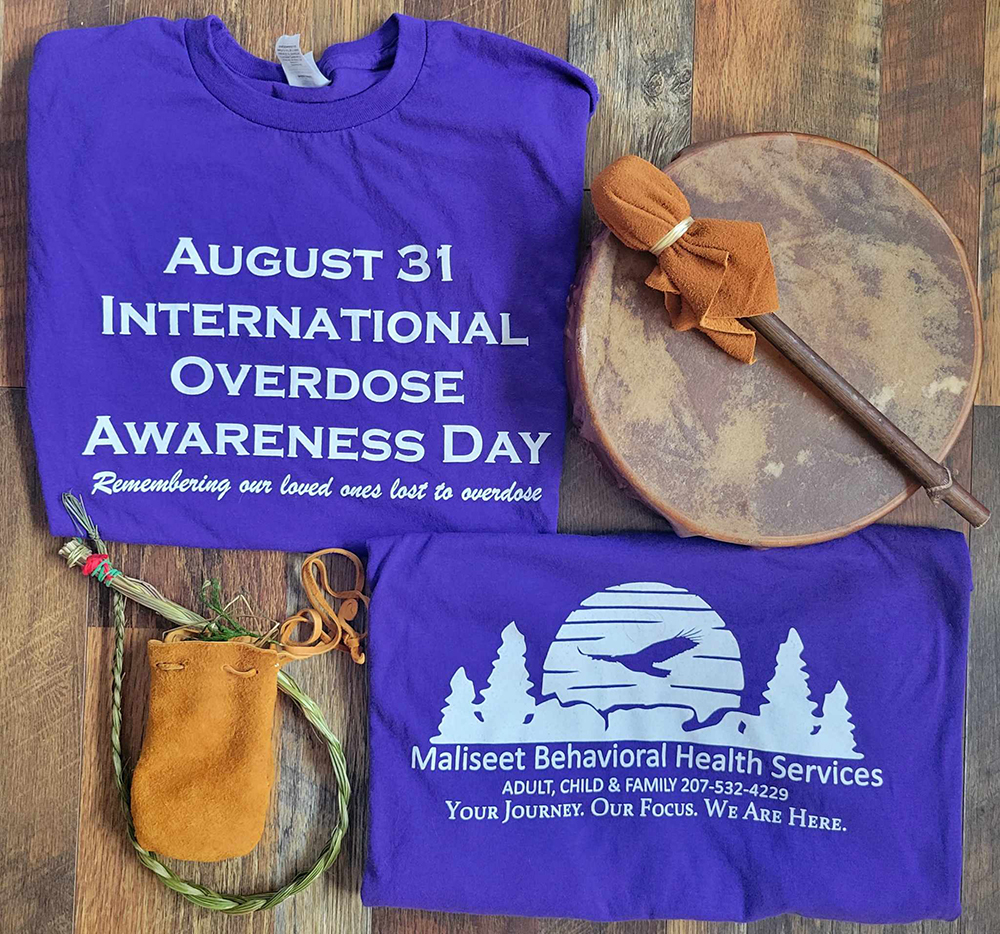
HOULTON, Maine – On Thursday, Aug. 31, the Houlton Band of Maliseet Indians participated in International Overdose Awareness Day.
International Overdose Awareness Day is the world’s largest annual campaign to end overdoses, remember without stigma those who have died from overdose, and acknowledge the grief of the family and friends left behind.
A partnership between the Maliseet Behavioral Health Program and Wabanaki Public Health and Wellness, a group of about 105 indigenous residents and tribal employees filled the Maliseet Community Center for the day-long event.
Featuring such activities drum making, medicine bags, Narcan training, and a round table discussion for people to share their stories, the event proved to be

“It’s a day to remember those we’ve lost to overdose, acknowledge the grief of the family and friends left behind, and renew our commitment to end overdose and related harms,” said Julie Ivey, licensed clinical social worker for the tribe. “Overdose and addiction feels like a taboo subject, yet days like today are causing us to address a global epidemic. It’s hard to understand the impact of addiction until it impacts you.”
Ivey added that overdose and addiction looks different for everyone. For her, the effects of drug overdose hit close to home.
“I lost my brother Dan in 2017 to an overdose,” she said. “When he died, our family completely changed. My other brother Ted is in recovery, and I am proud of him. My wish from this day is to start having open conversations with those who are struggling. Have compassion. Have empathy. I learned more about addiction and how to care for someone who is struggling after losing my brother. The best I can do now is to give that love to those who need it. For anyone who wants to learn how to be a better support for those struggling with addiction, I’m happy to talk with you.”
What is an overdose?
An overdose can happen when the body is overwhelmed by a toxic amount of substance or combination of substances. It’s possible to overdose on many substances if they are abused, including alcohol, illicit drugs, and even prescribed medication.
What are the signs of overdose & overdose symptoms?
The physical and psychological signs of a drug overdose can vary depending on the type of drug taken and whether the drug was taken in combination with other substances. Common signs and symptoms of a drug overdose can include:
- Dilated pupils, Nausea or vomiting, Headache, Chest pain.
- Seizures, Convulsions or tremors, blue lips or fingers, abnormally high body temperature.
- Severe difficulty breathing, shallow breathing, or complete cessation of breath.
- Gurgling sounds that indicate the person’s airway is blocked.
- Violent or aggressive behavior, Paranoia, Agitation.
- Disorientation or confusion, Unresponsiveness, Unconsciousness.
- Death.
For those who struggle with addiction or those who know someone who does, help is available. Doses of Narcan are available at the Maliseet Behavioral Health Program’s clinic without a prescription. Having a dose on-hand could help save a life.
“We also have services and access to resources if you want help,” Ivey said. “We are here for you. I knew my brother Dan suffered. He hurt. He had trouble with anxiety and depression. He sought relief the only way he knew how. If there is anything Dan has taught us, it is that we need to be more understanding of each other. We need to care for others. We need to understand that addiction is a symptom of a deeper problem. We need to see the human being behind the addiction and know that there is a person who is deeply loved by others. A person who needs your empathy and love and not your judgment. A person that is worthy.”
She added that her hope is for people to be more compassionate to those with mental illnesses and addiction. For more information or to seek help, contact 207-532-4229 or the Wabanaki Care Line at 1-844-844-2622.







